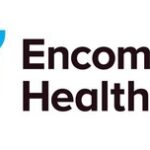In 2006, the Master of Science in Biomedical Informatics (M.S.B.I.) degree program—the only biomedical informatics program in existence at an osteopathic medical school—was established in collaboration with Nova Southeastern University College of Osteopathic Medicine NSU-COM) and the Graduate School of Computer and Information Science. Since then, the program has grown from 3 students to nearly 200 today. NSU-COM’s Biomedical Informatics Program leads the profession in the evolution of the health care environment, uniting technological and medical advancements to maximize efficiency, deliver services, and develop research pathways.
.jpg) The Biomedical Informatics Program—led by its director Jennie Q. Lou, M.D., M.Sc., professor of biomedical informatics, public health, and internal medicine—currently comprises 191 students and 31 faculty members. The program trains professionals in the development, dissemination, and evaluation of information technology as it relates to the health care environment—including hospitals, health care delivery systems, health information technology system vendors, ehealth companies, insurers, pharmaceutical companies, and academic institutions.
The Biomedical Informatics Program—led by its director Jennie Q. Lou, M.D., M.Sc., professor of biomedical informatics, public health, and internal medicine—currently comprises 191 students and 31 faculty members. The program trains professionals in the development, dissemination, and evaluation of information technology as it relates to the health care environment—including hospitals, health care delivery systems, health information technology system vendors, ehealth companies, insurers, pharmaceutical companies, and academic institutions.The program’s fully online format enables working professionals to earn a master’s degree without career disruption. Students may also pursue an M.S.N. in Nursing Informatics or Graduate Certificate in Public Health Informatics or Medical Informatics. A diverse student body hails from 23 nations, including the United States, Saudi Arabia, Pakistan, Puerto Rico, Bahamas, Colombia, Haiti, Jamaica, Brazil, Canada, Cuba, India, Mexico, Nigeria, Spain, Sudan, Sweden, Taiwan, United Kingdom, and Uzbekistan. For those who prefer a face-to-face option, on-campus courses are also available.
Dr. Lou views biomedical informatics as the bridge between medicine and technology and expects the need for experts in the field “to skyrocket,” especially with the development and acceptance of the Affordable Care Act (ACA). The far-reaching provisions for the ACA include gathering data and measuring quality of care, requiring an increase in health information careers expected to grow by 36 percent to deal with health disparities, epidemiology, and laboratory capacity.
Because collaboration is a key component of a program’s success, NSU-COM’s Biomedical Informatics Program continues to partner with the American Medical Informatics Association, a prestigious honor that keeps the college’s program on par with several major academic institutions nationwide—including Stanford University Medical School, University of Alabama at Birmingham, Oregon Health and Science University, and the University of Illinois at Chicago.
“Through this partnership, the quality of our program is recognized nationally,” Dr. Lou said. That broad recognition increased, as three NSU-COM affiliates completed the inaugural clinical informatics subspecialty board exams administered by the American Board of Preventive Medicine in October 2013. Two other students in the program garnered national notice by winning scholarships from the foundation of the Healthcare Information and Management Society (HIMSS) for academic excellence and demonstration of leadership potential in the health care information and management industry.
In May 2014, the Biomedical Informatics Program awarded 29 Master of Science degrees and highlighted the group’s achievements with four awards for research, service, and recognition. The majority of the graduates earned their degrees with distinction as 12 attained highest honors and 10 finished with honors.
Graduates already know the program is an investment that pays—and pays well. According to a national survey, the median salary in the health information technology field has increased in direct relation to the need of the specialty, with graduates starting at $85,000 and many physicians earning $250,000.
“We want our students to have more hands-on experience before they graduate, by establishing relationships for internships and practicum experiences at more than 100 sites, including Cleveland Clinic Florida, Palmetto General Hospital, the National Institutes of Health, and the Mayo Clinic,” Dr. Lou said proudly. “Where we once begged for spots, we now have the hospitals contacting us.”
With hopes to build a larger group of those ready to meet the future health care needs of a growing and aging population, Dr. Lou is working on a proposal to create a Ph.D. in Biomedical Informatics. Such development will enhance research and training in clinical informatics concepts, methods, and tools in order to analyze, design, implement, and evaluate information and communication systems that promote safer, more efficient, effective, timely, patient-centered, and equitable care.



























